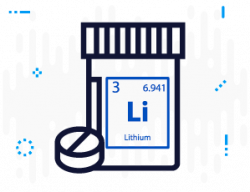Benicar Kickback Settlement and FDA Warnings
Benicar maker Daiichi Sankyo agreed to a $39 million settlement to resolve U.S. Department of Justice allegations that the company had paid kickbacks to doctors. The U.S. Food and Drug Administration also warned the drugmaker more than once that its Benicar promotions misled the public and violated FDA regulations.
In 2015, Daiichi Sankyo paid $39 million to the government and state Medicaid programs to resolve allegations that it had violated the False Claims Act by paying kickbacks.
Specifically, the company made illegal payments to doctors to encourage them to prescribe Daiichi drugs, including Azor, Benicar, Tribenzor and Welchol, according to the U.S. Justice Department.
As part of the settlement, the company entered into a corporate integrity agreement. The agreement states that the company would make substantial internal compliance reforms and roll them out over five years.
Daiichi Sankyo also faced FDA action over the marketing of Benicar as far back as 2006. The U.S. Food and Drug Administration said the marketing violated the federal rules.
$39 Million Benicar Kickback Settlement
The U.S. Justice Department accused Daiichi of paying physicians speaker fees. The fees were part of Daiichi’s Physician Organization and Discussion programs. The programs ran from January 2005 to March 2011 and from January 2004 to February 2011.
Some of the speaker programs involved lavish dinners. The dinners each cost more than $140 per person.
Sometimes, the speaker programs meant doctors talked to their own staffs. In other programs, doctors spoke to other members of the speakers’ program.
The settlement was a result of a case brought by a whistleblower, Kathy Fragoules. Fragoules was a former Daiichi sales representative. She was to receive $6.1 million of the payment.
The court action was in addition to more than 2,000 individual Benicar lawsuits that patients filed over the drug’s side effects. Patients in those suits blamed Benicar for gastrointestinal injuries. Daiichi settled most of these cases for $300 million in 2017. As of November 2022, there has been no further activity on these cases.
Benicar Misleading Marketing
The FDA warned Daiichi Sankyo more than once about marketing that was misleading. The agency noted misbranded information on Benicar and its alleged effectiveness.
The marketing materials promoted Benicar to consumers as the best drug in its class. This presumably led to prescriptions doctors otherwise might not have written.
The marketing also left out or played down certain risks associated with taking the drug.
FDA Violations
In 2006, the FDA issued a warning letter to Sankyo. The agency advised the Sankyo that its promotional materials violated FDA regulations. At the time, Sankyo had not yet merged with Daiichi.
The letter said Sankyo distributed marketing materials that suggested Benicar was the best. The company also suggested Benicar was more effective than competitors.
The FDA said there was not enough evidence to support the claims made in the marketing materials.
In late 2013, the FDA again warned Daiichi about misleading Benicar marketing materials.
Benicar Promotions Downplayed or Omitted Risks
The warning letter also said Sanyko left out or minimized risk information.
The FDA accused Sankyo of omitting or downplaying information on risks during pregnancy.
Sankyo also left out or minimized information for patients with renal artery stenosis. Renal artery stenosis is the narrowing of arteries that carry blood to one or both kidneys.
OTHER OMITTED OR MINIMIZED RISKS INVOLVED:
-
 patients with impaired liver function
patients with impaired liver function -
 patients with systemic lupus erythematosus
patients with systemic lupus erythematosus -
 patients taking the drug lithium
patients taking the drug lithium
Calling this number connects you with a Drugwatch representative. We will direct you to one of our trusted legal partners for a free case review.
Drugwatch's trusted legal partners support the organization's mission to keep people safe from dangerous drugs and medical devices. For more information, visit our partners page.


